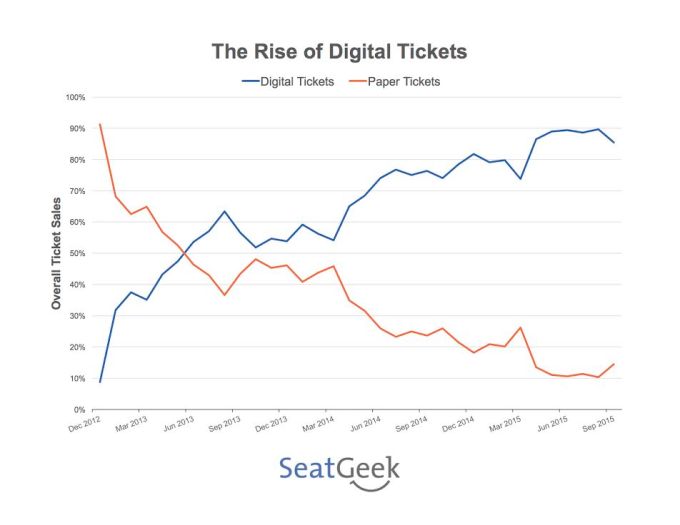Understanding SeatGeek’s Ticket Resale Policies
When trying to sell tickets on SeatGeek, it’s essential to understand the platform’s rules and regulations regarding ticket resale. SeatGeek has specific policies in place to ensure a smooth and secure transaction process for both buyers and sellers. These policies may impact the sale of your tickets, so it’s crucial to familiarize yourself with them.
One of the primary restrictions on SeatGeek is the type of tickets that can be sold. For example, SeatGeek may not allow the resale of certain types of tickets, such as tickets purchased through a ticket lottery or tickets that are part of a package deal. Additionally, SeatGeek may have specific rules regarding the pricing of tickets, including minimum and maximum price limits.
SeatGeek also has policies in place regarding the sellers themselves. For instance, sellers may be required to provide identification or proof of ownership for the tickets they are selling. This is to prevent fraudulent activity and ensure that buyers are purchasing legitimate tickets.
It’s also important to note that SeatGeek charges fees to sellers, which can impact the profit margins of your ticket sales. These fees can vary depending on the type of ticket, the price of the ticket, and the seller’s account type.
By understanding SeatGeek’s ticket resale policies, you can avoid any potential issues that may arise when trying to sell your tickets. This includes ensuring that your tickets comply with SeatGeek’s rules and regulations, setting competitive prices, and providing accurate and detailed descriptions of your tickets.
If you’re struggling to sell your tickets on SeatGeek, it may be due to a lack of understanding of these policies. By taking the time to familiarize yourself with SeatGeek’s rules and regulations, you can increase your chances of selling your tickets quickly and efficiently.
So, why can’t you sell your tickets on SeatGeek? It may be due to a simple misunderstanding of the platform’s policies. By taking the time to understand these policies, you can avoid common pitfalls and ensure a successful ticket sale.
Common Reasons Why Your Tickets Aren’t Selling on SeatGeek
Despite understanding SeatGeek’s ticket resale policies, many sellers still struggle to sell their tickets on the platform. There are several common issues that may prevent tickets from selling on SeatGeek, and addressing these issues can help increase the chances of a successful sale.
One of the most common reasons why tickets aren’t selling on SeatGeek is incorrect pricing. If the price of your tickets is too high, it may deter potential buyers from making a purchase. On the other hand, if the price is too low, you may not be getting the best possible return on your investment. To avoid this issue, research the market demand for your specific event and set a competitive price for your tickets.
Another common issue is poor ticket descriptions. If the description of your tickets is unclear or incomplete, it may lead to confusion among potential buyers. Make sure to include all relevant details, such as the ticket type, seat location, and any restrictions or limitations.
Inadequate photos can also be a major turn-off for potential buyers. Make sure to include high-quality images of your tickets, including the front and back of the ticket, as well as any other relevant details.
Additionally, failure to respond to buyer inquiries in a timely manner can also impact the sale of your tickets. Make sure to check your messages regularly and respond to any questions or concerns that potential buyers may have.
So, why can’t you sell your tickets on SeatGeek? It may be due to one of these common issues. By addressing these problems and taking steps to improve your listing, you can increase your chances of selling your tickets quickly and efficiently.
Some other common issues that may prevent tickets from selling on SeatGeek include:
- Insufficient or inaccurate information about the event or tickets
- Poor communication with potential buyers
- Uncompetitive pricing or failure to adjust prices in response to market demand
- Failure to utilize relevant keywords or categories in the listing
By being aware of these common issues and taking steps to address them, you can improve your chances of selling your tickets on SeatGeek and getting the best possible return on your investment.
How to Optimize Your SeatGeek Listing for Maximum Visibility
Once you’ve created your SeatGeek listing, it’s essential to optimize it for maximum visibility. This will help your tickets stand out from the competition and increase the chances of selling them quickly and efficiently.
One of the most effective ways to optimize your listing is to use relevant keywords. SeatGeek’s search algorithm takes into account the keywords used in your listing, so make sure to include relevant terms such as the event name, venue, and ticket type. This will help your listing appear in search results and attract more potential buyers.
Another crucial aspect of optimizing your listing is setting competitive prices. Research the market demand for your specific event and set a price that is competitive with other similar listings. Keep in mind that SeatGeek’s fees will also impact your profit margins, so make sure to factor those in when setting your price.
High-quality images are also essential for optimizing your listing. Include clear and well-lit photos of your tickets, including the front and back of the ticket, as well as any other relevant details. This will help build trust with potential buyers and increase the chances of selling your tickets.
In addition to keywords, prices, and images, there are several other ways to optimize your SeatGeek listing. These include:
- Using a clear and concise title that accurately reflects the content of your listing
- Providing detailed and accurate descriptions of your tickets, including any restrictions or limitations
- Utilizing SeatGeek’s categorization system to ensure your listing appears in the correct categories
- Responding promptly to buyer inquiries and messages to build trust and increase the chances of selling your tickets
By optimizing your SeatGeek listing, you can increase its visibility and attract more potential buyers. This, combined with a solid understanding of SeatGeek’s ticket resale policies and common issues that may prevent tickets from selling, can help you overcome the question of why can’t I sell my tickets on SeatGeek and achieve a successful sale.
Remember, optimizing your listing is an ongoing process that requires regular monitoring and adjustments. Keep an eye on your listing’s performance and make changes as needed to ensure it remains competitive and attractive to potential buyers.
The Impact of Market Demand on Ticket Sales
Market demand plays a significant role in the sale of tickets on SeatGeek. Understanding the demand for your specific event can help you adjust your listing and increase the chances of selling your tickets. But why can’t you sell your tickets on SeatGeek if there’s demand for the event?
The answer lies in the fact that market demand is not always consistent. Demand can fluctuate based on various factors such as the time of year, the day of the week, and the weather. Additionally, demand can be affected by the availability of tickets, the prices of tickets, and the overall interest in the event.
To research and understand demand for your specific event, you can use various tools and resources such as:
- SeatGeek’s demand charts, which provide a visual representation of demand for the event
- Google Trends, which can help you understand the overall interest in the event
- Social media, which can provide insights into the buzz and excitement surrounding the event
By understanding the demand for your specific event, you can adjust your listing to meet the needs of potential buyers. This may include adjusting the price of your tickets, providing more detailed descriptions of your tickets, or utilizing high-quality images to showcase your tickets.
For example, if demand for the event is high, you may be able to increase the price of your tickets. On the other hand, if demand is low, you may need to lower the price of your tickets to attract more buyers.
Additionally, understanding market demand can help you identify opportunities to sell your tickets. For example, if there’s a surge in demand for the event due to a last-minute announcement or a change in the event schedule, you can adjust your listing to capitalize on the increased demand.
By staying on top of market demand and adjusting your listing accordingly, you can increase your chances of selling your tickets on SeatGeek and overcome the question of why can’t I sell my tickets on SeatGeek.
Competing with Authorized Ticket Sellers: What You Need to Know
Authorized ticket sellers on SeatGeek can be a significant source of competition for individual sellers. These sellers have a direct relationship with the event organizer or venue and often have access to a large inventory of tickets. But why can’t you sell your tickets on SeatGeek if authorized sellers are dominating the market?
The answer lies in the fact that authorized sellers have a number of advantages that can make it difficult for individual sellers to compete. For example, authorized sellers often have a large inventory of tickets, which can make it harder for individual sellers to stand out. Additionally, authorized sellers may have a more established reputation and trust with buyers, which can make it harder for individual sellers to build credibility.
However, there are still ways for individual sellers to compete with authorized ticket sellers on SeatGeek. One strategy is to focus on providing excellent customer service and building a positive reputation with buyers. This can help to build trust and increase the chances of selling your tickets.
Another strategy is to focus on niche markets or events that are not as heavily dominated by authorized sellers. For example, if you have tickets to a smaller or less popular event, you may be able to compete more effectively with authorized sellers.
Additionally, individual sellers can use creative marketing strategies to stand out from authorized sellers. For example, you can use social media to promote your tickets and build a community of potential buyers. You can also use targeted advertising to reach buyers who are interested in the event.
By understanding the role of authorized ticket sellers on SeatGeek and developing strategies to compete with them, you can increase your chances of selling your tickets and overcome the question of why can’t I sell my tickets on SeatGeek.
Some other strategies for competing with authorized ticket sellers include:
- Offering competitive pricing and discounts
- Providing detailed and accurate descriptions of your tickets
- Utilizing high-quality images and videos to showcase your tickets
- Building relationships with potential buyers and providing excellent customer service
By using these strategies, you can increase your chances of selling your tickets on SeatGeek and competing effectively with authorized ticket sellers.
SeatGeek’s Fees and How They Affect Your Bottom Line
When selling tickets on SeatGeek, it’s essential to understand the fee structure and how it may impact your profit margins. SeatGeek charges various fees to sellers, including a commission fee, a payment processing fee, and a shipping fee.
The commission fee is a percentage of the sale price of the ticket, and it varies depending on the type of ticket and the seller’s account type. For example, SeatGeek charges a commission fee of 10% to 15% for most ticket sales.
The payment processing fee is a flat fee charged by SeatGeek for processing payments. This fee is typically around 2.9% + $0.30 per transaction.
The shipping fee is a flat fee charged by SeatGeek for shipping tickets to buyers. This fee is typically around $5 to $10 per order.
Understanding SeatGeek’s fee structure can help you minimize fees and maximize your earnings. For example, you can adjust your pricing to account for the commission fee, or you can offer free shipping to attract more buyers.
Additionally, SeatGeek offers various tools and services to help sellers minimize fees and maximize their earnings. For example, SeatGeek’s pricing tool can help you set competitive prices for your tickets, and SeatGeek’s shipping labels can help you save time and money on shipping.
By understanding SeatGeek’s fee structure and using the tools and services available, you can increase your chances of selling your tickets and maximizing your earnings. But why can’t you sell your tickets on SeatGeek if you’re not aware of the fees? By being aware of the fees, you can adjust your pricing and listing accordingly, and increase your chances of selling your tickets.
Some other ways to minimize fees and maximize your earnings on SeatGeek include:
- Using SeatGeek’s pricing tool to set competitive prices
- Offering free shipping to attract more buyers
- Using SeatGeek’s shipping labels to save time and money on shipping
- Providing excellent customer service to increase buyer satisfaction and reduce returns
By following these tips, you can increase your chances of selling your tickets on SeatGeek and maximizing your earnings.
Troubleshooting Common Issues with Your SeatGeek Listing
Even with a well-optimized listing, issues can still arise that may prevent your tickets from selling on SeatGeek. In this section, we’ll provide solutions to common problems that may arise with your SeatGeek listing.
One common issue is payment processing errors. If a buyer is unable to complete a payment, it may be due to a problem with their payment method or a technical issue with SeatGeek’s payment processing system. To resolve this issue, you can try contacting SeatGeek’s customer support team or providing alternative payment options to the buyer.
Another common issue is shipping errors. If a buyer does not receive their tickets, it may be due to a problem with the shipping address or a delay in shipping. To resolve this issue, you can try contacting the buyer to confirm their shipping address or providing tracking information to ensure the tickets are delivered on time.
Customer communication issues can also arise, such as a buyer not responding to messages or not providing payment information. To resolve this issue, you can try sending a follow-up message to the buyer or providing additional information to help them complete the purchase.
By being aware of these common issues and having a plan in place to resolve them, you can minimize the risk of problems arising with your SeatGeek listing and increase your chances of selling your tickets. But why can’t you sell your tickets on SeatGeek if you’re not prepared to troubleshoot common issues? By being prepared, you can quickly resolve any issues that may arise and ensure a smooth transaction for both you and the buyer.
Some other common issues that may arise with your SeatGeek listing include:
- Issues with ticket authenticity or verification
- Problems with ticket delivery or pickup
- Disputes with buyers over ticket prices or descriptions
By being aware of these potential issues and having a plan in place to resolve them, you can minimize the risk of problems arising with your SeatGeek listing and increase your chances of selling your tickets.
Maximizing Your Chances of Selling Your Tickets on SeatGeek
In this article, we’ve discussed the various factors that can impact the sale of your tickets on SeatGeek, from understanding the platform’s rules and regulations to optimizing your listing for maximum visibility. But why can’t you sell your tickets on SeatGeek if you’re not willing to put in the effort to maximize your chances of success?
The key to selling your tickets on SeatGeek is to be persistent, flexible, and provide excellent customer service. By being proactive and responsive to buyer inquiries, you can build trust and increase the chances of selling your tickets.
Additionally, being flexible with your pricing and willing to negotiate can also help to attract more buyers. By being open to reasonable offers and willing to compromise, you can increase the chances of selling your tickets and achieving a successful transaction.
Finally, providing excellent customer service is crucial to building a positive reputation on SeatGeek and increasing your chances of selling your tickets. By being responsive, helpful, and courteous, you can build trust with potential buyers and increase the chances of selling your tickets.
Some final tips for maximizing your chances of selling your tickets on SeatGeek include:
- Being proactive and responsive to buyer inquiries
- Being flexible with your pricing and willing to negotiate
- Providing excellent customer service and building a positive reputation on SeatGeek
- Continuously monitoring and adjusting your listing to optimize its visibility and appeal
By following these tips and being committed to maximizing your chances of success, you can increase your chances of selling your tickets on SeatGeek and achieving a successful transaction.






